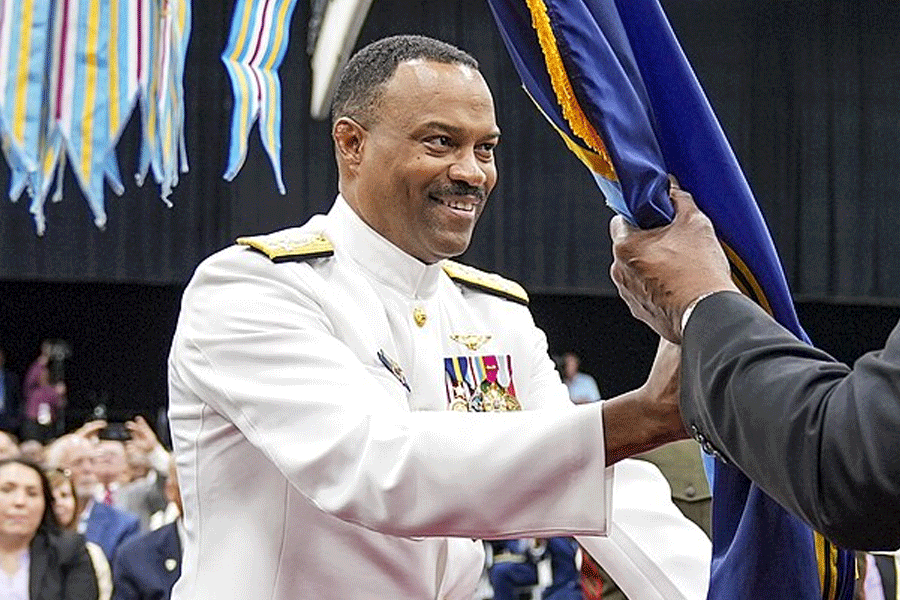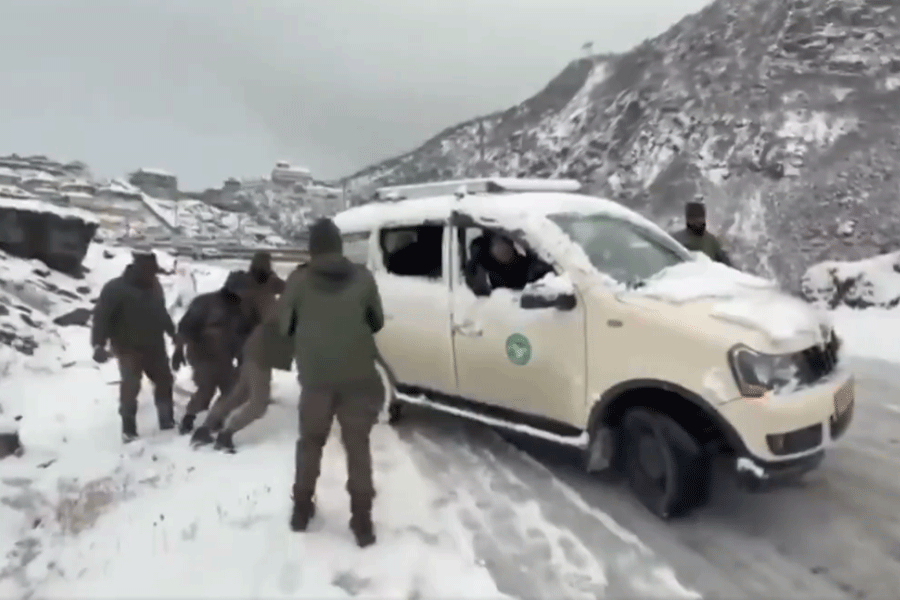The military commander overseeing the Pentagon’s escalating attacks against boats in the Caribbean Sea that the Trump administration says are smuggling drugs said on Thursday that he would step down at the end of this year.
In a post on X, the US defence secretary Pete Hegseth wrote, “On behalf of the Department of War, we extend our deepest gratitude to Admiral Alvin Holsey for his more than 37 years of distinguished service to our nation as he plans to retire at year’s end. A native of Fort Valley, Georgia, Admiral Holsey has exemplified the highest standards of naval leadership since his commissioning through the NROTC program at Morehouse College in 1988."
Holsey, who was nominated by former President Joe Biden, said in a statement posted on X: “It’s been an honor to serve our nation, the American people and support and defend the Constitution for over 37 years. Serving as your commander and deputy for the past 34 months has been a tremendous honor.”
The unexpected move comes as Washington intensifies its military presence in the Caribbean amid escalating tensions with Venezuela.
Admiral. Holsey is leaving his job as head of the US Southern Command, which oversees all operations in Central and South America, even as the Pentagon has rapidly built up some 10,000 forces in the region in what it says is a major counterdrug and counterterrorism mission.
It was unclear why Holsey is suddenly departing, less than a year into what is typically a three-year job, and in the midst of the biggest operation in his 37-year career.
A source familiar with the matter told Reuters that there had been tension between Admiral Holsey and Hegseth over operations in the Caribbean and questions about whether the admiral would be fired in the days leading up to the announcement.
US Senator Jack Reed, the top Democrat on the Senate Armed Services Committee, called Holsey’s early resignation troubling amid the possibility of a confrontation with Venezuela.
“Admiral Holsey’s resignation only deepens my concern that this administration is ignoring the hard-earned lessons of previous US military campaigns and the advice of our most experienced warfighters," Reed said in a statement.
The US military carried out a new strike on Thursday against a suspected drug vessel in the Caribbean, and in what is believed to be the first such case, there were survivors among the crew, a US official told Reuters.
The development raises new questions, including whether the US military rendered aid to the survivors and whether they are now in US military custody, possibly as prisoners of war.
Venezuela has asked the United Nations Security Council to determine that deadly US strikes on vessels off its coast are illegal and issue a statement backing Venezuela's sovereignty.
In a letter to the 15-member Security Council, dated Wednesday, Venezuela's UN ambassador Samuel Moncada accused Washington of killing at least 27 people in the strikes on "civilian vessels transiting international waters."
He asked the council to "investigate" the strikes to "determine their illegal nature" and issue a statement "reaffirming the principle of unrestricted respect for the sovereignty, political independence, and territorial integrity of states," including Venezuela.
However, the Security Council will be unable to take any action beyond holding meetings on the situation because the United States holds veto power. The council met for the first time last week over the tensions at the request of Venezuela, Russia, and China.
At that meeting, Washington justified its actions as consistent with Article 51 of the founding UN Charter, which requires the Security Council to be immediately informed of any action states take in self-defence against armed attack.
On Wednesday, US President Donald Trump disclosed that he had authorized the Central Intelligence Agency to conduct covert operations inside Venezuela, adding to speculation in Caracas that the United States is attempting to topple President Nicolas Maduro.
Since early September, US Special Operations forces have struck at least five boats off the Venezuelan coast that the White House says were transporting drugs, killing 27 people.
A range of specialists in the laws governing the use of force have disputed the Trump administration’s claim that it can lawfully kill people suspected of drug trafficking like enemy troops instead of arresting them for prosecution.
Holsey, who is Black, becomes the latest in a line of more than a dozen military leaders, many of them people of color and women, who have left their jobs this year. Most have been fired by Hegseth or pushed out.
It was not clear on Thursday who would replace Holsey.
The attacks have alarmed Democratic lawmakers and raised questions among some legal experts, who see Trump testing the limits of the law as he expands the scope of presidential power.
Some former military lawyers say the legal explanations given by the Trump administration for killing suspected drug traffickers at sea instead of apprehending them fail to satisfy requirements under the law of war, which requires several criteria to be met before taking lethal action - including first using non-lethal means like firing warning shots.
Legal experts have also questioned why the US military is carrying out the strikes instead of the Coast Guard, which is the main US maritime law enforcement agency.










